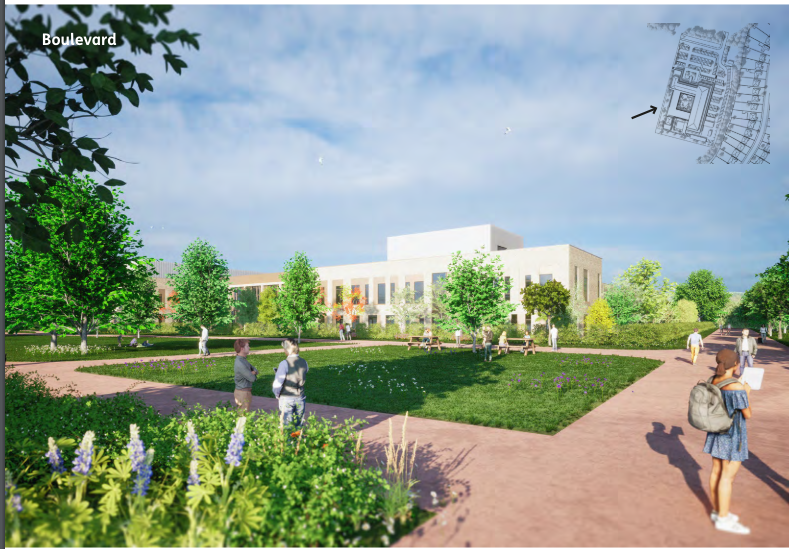
Intelligent Land’s Planning Appeal Success: A Reflection on the Planning System’s Flaws
Intelligent Land (IL) recently celebrated a significant planning appeal victory on behalf of its clients, Talbot Village Trust and Nuffield Health, for their ambitious Innovation Quarter site at Highmoor Farm, Poole. This success, however, underscores deeper issues within the current planning system.
The Appeal and Its Context
The project in question involved a comprehensive development plan. Talbot Village Trust and Nuffield Health submitted a full application for the construction of a new 11,606 m2 Nuffield Health Hospital. Additionally, an outline planning application aimed to establish 13,394 m2 of employment, healthcare, and university-related floorspace. This included ancillary uses, a Growing Hub, and the conversion of 12 hectares of grazing land into a Heathland Support Area. Despite the potential benefits of this development, the journey through the planning process was fraught with challenges.
Initial Approval and Subsequent Obstacles
The proposed site is part of the Poole Local Plan 2018, adopted after extensive consultation and examination. The development precisely matched the type outlined in the allocation. BCP (Bournemouth, Christchurch, and Poole) Council’s planning officers recommended approval in a detailed 160-page report, highlighting the project’s alignment with local planning goals. However, despite this endorsement, the BCP Planning Committee, influenced by local resident lobbying efforts to “rewrite the local plan,” refused the application. This rejection came in stark contrast to the detailed officer recommendation and the adopted local plan, revealing the sway of political and parochial interests over objective planning assessments.
Appeal and Outcome
Facing a stalemate, with the Council delaying the issuance of a decision notice for three months, Talbot Village Trust and Nuffield Health were compelled to appeal. The ensuing public inquiry spanned three weeks and ultimately concluded with the appeal being allowed. Costs were also awarded against the Council, a significant decision reflecting the merit of the appeal and the undue delays caused by the Council’s actions.
Implications for the Planning System
While IL’s expertise and determination led to a favourable outcome, the case highlights systemic issues within the planning process. The situation at Highmoor Farm illustrates how local politics and resident lobbying can derail developments, even when they align with established plans and receive professional approval. This incident underscores a broader problem within the planning system where political and local biases can obstruct progress, causing unnecessary delays and financial burdens.
The Future of Planning Reform
This appeal success arrives at a pivotal time, as the new Labour Government promises to streamline the planning process, with a specific focus on housing delivery. The recent King’s speech emphasised a significant shift: public comments will now be limited to “how” rather than “if” housing should be delivered. While the Highmoor Farm project is not housing, the reform’s principles could foster a more efficient and objective planning process.
Conclusion
The planning appeal success for Talbot Village Trust and Nuffield Health at Highmoor Farm is a testament to IL’s robust planning and appeal expertise. However, it also serves as a stark reminder of the current planning system’s vulnerabilities to political and parochial interests. As the government moves towards streamlining planning processes, it is hoped that these reforms will mitigate such challenges, ensuring that well-considered developments can proceed without undue obstruction.
